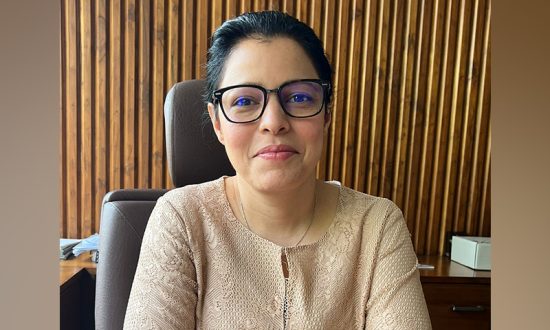A bachelor’s degree in International Hospitality and Tourism Management from the University of Surrey, and an MBA in International Hospitality Management from Switzerland, Ms. Mansi J Vyas is not just the Co-founder of Azafran; she is also a multi-talented soul adept at managerial finance who knows the science of marketing like the back of her hand. Ms. Mansi, along with her sister Ms. Aditi, envisioned creating a company that never compromised on product quality, always used fully natural ingredients and was forever committed to sustainability. The siblings identified a big gap of such an organization in the market, and thus, in the year 2007, Azafran Innovacion Ltd. was born.
The journey may be tough, but the destination is worth it. This is the philosophy to imbibe when it comes to adopting sustainability in a business. With the threat of climate change shrouding us now more than ever, it is no longer a question of “when” but “how soon” can brands go green in order to build a better tomorrow!
While many companies have taken the sustainable route, a significant amount of players are apprehensive about transforming into comprehensively sustainable entities. The big green elephant in the room is: Can a brand truly go 100% sustainable?
Well, if anecdotal evidence is to be believed, total sustainability is actually a very achievable goal. The five key factors that enable 100% sustainability for a business are:
Sustainable Manufacturing: It all begins at ground zero! Right from sourcing of materials, ingredients used to formulation and development, in today’s organic and eco-friendly environment, brands can make sure that their production processes are sustainable from end to end. Optimum utilization of resources and maximum reduction in wastage are two facets that play a pivotal role when binding sustainability into manufacturing.
Sustainable Packaging: It is equally essential that a product is packed with sustainability in mind. Packaging that can be repurposed or recycled is a welcome addition, and ones that are from bio-degradable materials are ideal as well. Not leaving any toxic carbon footprint is also a big plus. In the end, it is not just the product but also its packaging that determines an organisation’s dedication towards absolute sustainability.
Sustainable Distribution: An oft ignored facet, the process of how a product reaches the end consumer also plays a huge role in ensuring sustainability in more ways than one. Tying up with logistics and distribution companies that rely on efficient and optimized executions is an important step in facilitating 100% sustainability.
Sustainable Certification: There is no replacement for pedigree and expertise. Certifications like ECOCERT as well as adherence to other sustainable standards and practices can go a long way in solidifying a company’s sustainable efforts. This may be an intricate process but the stamp of approval from seasoned authorities can be a very strong asset.
Sustainable Communication: Nowadays, consumers are choosing to associate with organic and sustainable brands, which is why clear and precise communication about a company’s sustainable practices is necessary. The more transparent a brand is about its manufacturing, packaging as well as ingredients, the more trust a consumer places on its products. It is not just becoming 100% sustainable, but also talking about it.
With the right blend of innovation and dedication, 100% sustainability is no longer a pipe dream but a realistic mission that organisations can work towards. As consumers growingly exhibit eco-conscious behaviours, for brands, the time to get sustainable is now or never!






